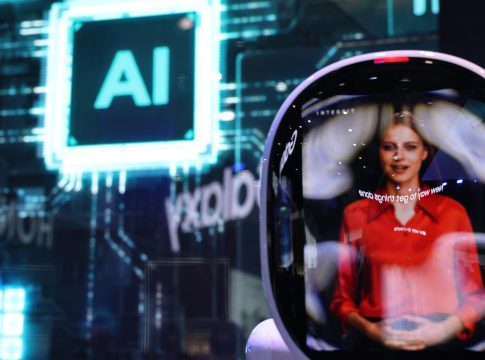AI Revolutionizes Advertising: Implications for the Industry
As the Mobile World Congress 2024 unfolds in Barcelona, the advertising industry finds itself at a pivotal moment, grappling with the transformative power of artificial intelligence (AI). Mark Read, the outgoing CEO of WPP—a leading British advertising firm—recently shared insights on how generative AI tools are reshaping the landscape of marketing and content creation.
The Disruption Caused by Generative AI
The rise of generative AI technology is rapidly changing the way advertising companies operate. Tools such as DALL-E, Google’s Veo, and Midjourney are enabling creatives to generate images and content at unimaginable speeds, prompting industry leaders to rethink traditional paradigms.
In an interview, Read expressed that this shift could democratize access to expertise. “AI will make the world’s knowledge available to anyone at a fraction of the cost,” he noted, implying that the best professionals in various fields—law, psychology, and even marketing—could soon be powered by AI.
WPP’s AI Integration
In a bid to stay ahead, WPP has integrated AI into its operations through the WPP Open platform. Roughly 50,000 employees are leveraging this AI-powered marketing tool, suggesting that the company recognizes AI as a crucial component of its future strategy.
Read elaborated on the need for the industry to adapt: “We must embrace AI’s impact,” he urged, emphasizing that this technology will reshape everything from campaign strategies to media planning.
Industry-wide Transformation
This sentiment is echoed by Maurice Levy, CEO of Publicis Groupe, who stated at the Viva Tech conference that AI is catalyzing a significant transformation. He pointed out that AI’s ability to generate content and personalize messages at scale is accelerating production timelines and enhancing targeting precision.
However, Levy also cautioned against viewing AI as anything more than a tool. “It’s important to recognize that AI should augment human creativity, not replace it,” he explained. While some jobs may disappear, he predicts that AI will ultimately create new ones, comparing its potential to previous technological advancements like the internet.
Consumer Concerns and Ethical Considerations
Despite the opportunities AI presents, there are genuine concerns among consumers. A survey by Gartner found that 82% of respondents believe businesses should prioritize preserving human jobs over maximizing profits when using generative AI. Nicole Denman Greene, a Gartner analyst, stressed the importance of balancing technological advancement with ethical considerations, suggesting that brands focus on what AI should achieve rather than just what it can do. This includes fostering unique insights and delivering personalized experiences that reflect diverse audience needs.
Conclusion: A Moving Landscape
As AI continues to evolve, its impact on the advertising industry will likely deepen. While the disruption brings forth challenges, it also presents opportunities for innovation and enhanced creativity. The key for brands will be to navigate this complex terrain thoughtfully—embracing AI where it enhances human capabilities while being mindful of its broader ethical implications. In this rapidly changing environment, the future of advertising holds immense potential, powered by the symbiosis of human creativity and artificial intelligence.

Writes about personal finance, side hustles, gadgets, and tech innovation.
Bio: Priya specializes in making complex financial and tech topics easy to digest, with experience in fintech and consumer reviews.

